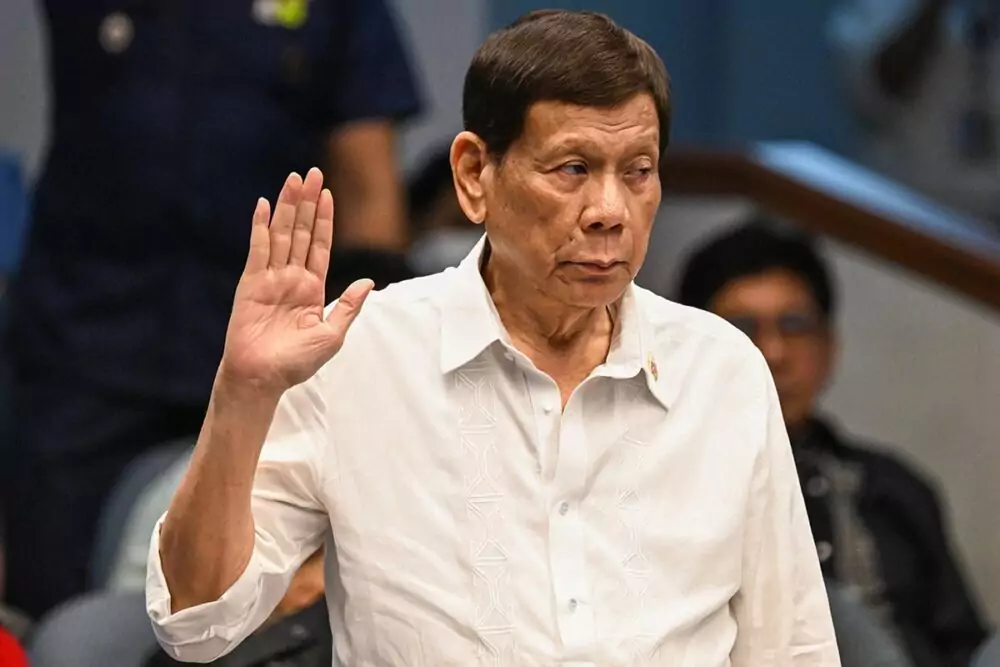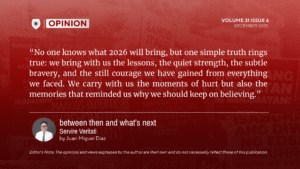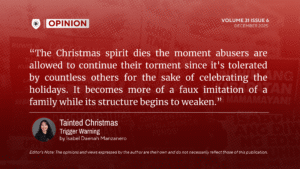Written by John Marion G. De Guzman | August 26, 2025

Credits by justiceinfo.net
LOOK BACK: ICC’s Proceedings Against Duterte over Crimes Against Humanity.
FORMER President Rodrigo Roa Duterte is facing proceedings before the International Criminal Court (ICC) over alleged crimes against humanity tied to his administration’s war on drugs campaign.
Charges and Allegations
The investigation, launched on Sept. 15, 2021, continues to progress despite the repeated protests and objections from some government officials and Filipino people questioning the jurisdiction of the ICC.
On Nov. 1, 2011, the Philippines became a State party to the Rome Statute—an international treaty that established the ICC and provides the authority to look into and bring charges against people for crimes against humanity, war crimes, crimes of aggression, and genocide. However, the country formally deposited its withdrawal on March 17, 2018, which took effect a year later on March 17, 2019.
Despite the withdrawal, the ICC affirms its jurisdiction over the alleged crimes committed during the country’s membership from Nov. 1, 2011, to March 16, 2019. Despite the claims that the killings persisted after the said period, the ICC Pre-trial Chamber I clarified that its authority was restricted only to looking into crimes committed during the country’s membership term.
Subsequently, on Feb. 10, 2025, the ICC’s Prosecutor’s Office sought a warrant of arrest against former President Duterte for crimes against humanity, with the charges of murder, torture, and rape. The mounting evidence of the alleged organized human rights violations during his administration's war on drugs, along with petitions from the families of the victims and human rights activists, became a key factor for the ICC to pursue the proceedings.
Public and Political Reactions
ICC prosecutor Fatou Bensouda estimated that by the end of Duterte’s term in 2022, police and other individuals would have allegedly killed almost 30,000 people. However, police only reported 7,000 deaths that occurred during police operations, excluding those killed by unidentified criminals.
Within that timeframe, the officers of the PNP raided the residences of the citizens at night, resulting in their arrest and execution of alleged suspects—often planting and fabricating evidence to support their cause. Of the substantial number of cases, only four have been investigated or convicted, with all involving low-ranking police officials who were found guilty of extrajudicial killings.
The ICC then issued an arrest warrant against Duterte on March 7, 2025. It was made public on March 11, and he was arrested the following day and flown to the ICC, in the Hague, Netherlands. “If I committed a sin, prosecute me in the Philippine courts,” Duterte said.
Responses following the arrest were highly polarized. Some celebrated it as a win for human rights and international justice, while some criticized the arrest, with his supporters creating various protests, stating to “bring him home”.
Court Appearance and Proceedings
His first court appearance was held on March 14, 2025, where he joined the hearing through a video link, authorized by the Chamber due to his lengthy transfer from the Philippines to the custody of the ICC.
In an interview posted on the Facebook page of his former spokesman, Harry Roque, on Aug. 20, 2025, Duterte’s daughter, Kitty, reiterated his father’s stance on the war on drugs. “He says, no regrets and no apologies. He did what he could for the country,” she said.
The ICC Pre-Trial Chamber I has scheduled the hearing on the confirmation of charges against former president Duterte on Sept. 23, 2025. If the charges are upheld, the case will move to a full trial—marking a historic moment as a former Philippine president faces international prosecution.
Volume 31 | Issue 2



